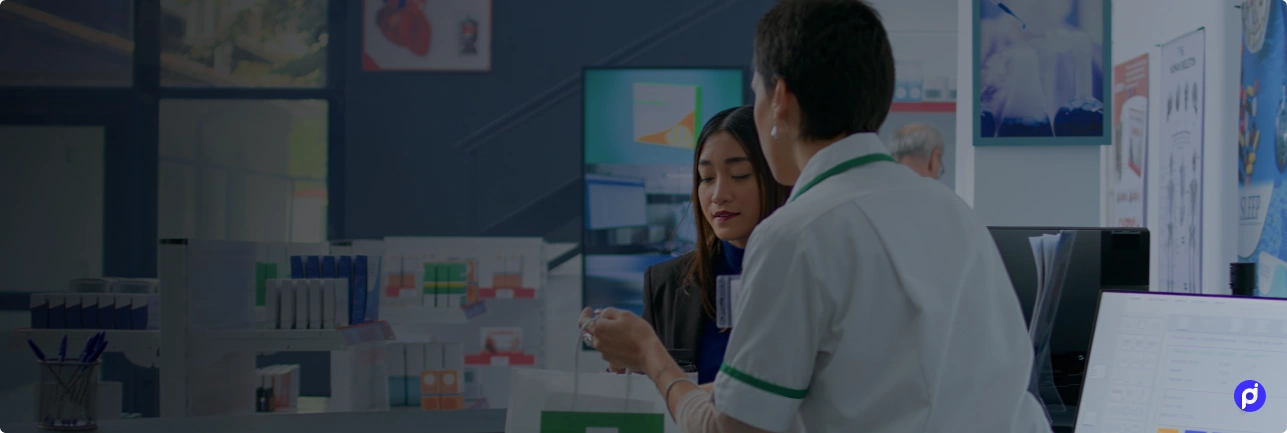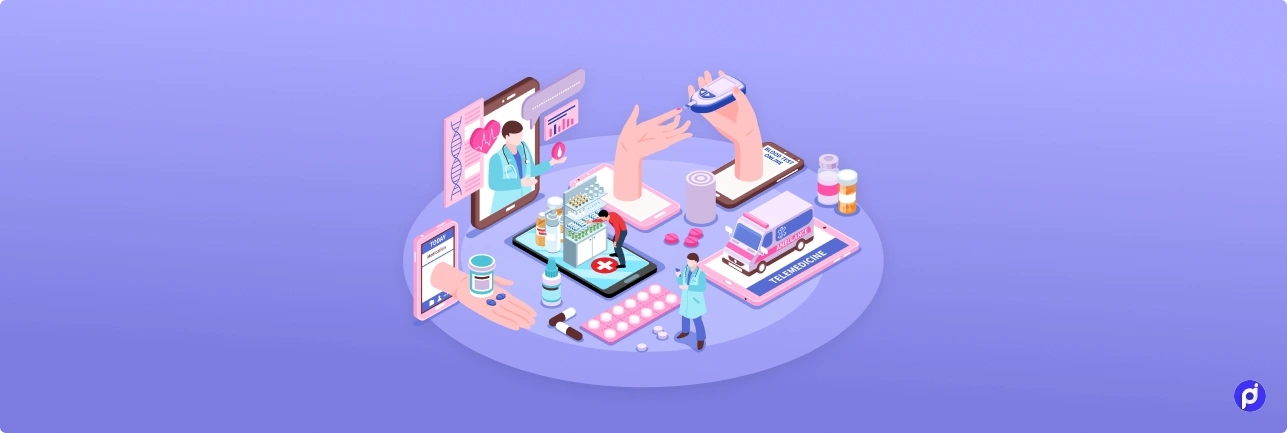Everyone is prepared for a future when mobile applications will dominate their lives. In the healthcare industry, mobile apps have become a necessity for survival. The distance between patients accessing medicines and healthcare service providers is bridged with a mobile app. Moreover, a mobile application has given multiple benefits to pharmacists who are struggling to manage their employees and business processes. Mobile app development for healthcare has introduced robust applications which ease medicine purchases and dosages. Such healthcare is generally called healthcare in palms. In this discussion we are going to talk about the different mobile app types for pharma industries.
5 Mobile App Types for Pharma:
1. Drug Information Application
These applications can give a push to your pharma by providing resources to your consumers. Mobile app development for healthcare is focusing on these applications to increase customer awareness regarding the variety of applications so that they do not have to face adverse side effects after taking a drug. Besides, your pharma staff can also access these applications to guide medicine consumers.
2. Sales Application
It’s totally made for your benefit. As sales is an important part of business, mobile app development for healthcare has brought sales applications which can help pharmaceutical companies in managing and optimizing their sales operations. These applications are tailored to address the unique challenges and requirements of the pharmaceutical industry. Some important features present in pharma sales application are customer relationship management, salesforce automation, inventory management, location tracking and field operations etc.
3. Training Application
A pharma business needs to train their employees. Why spend hours training your employees through face-to-face discussion. The best thing is to equip your employees with a training application which will contain a variety of training materials. These will help your employees to take ownership of their tasks. Sometimes training applications contain gamification elements by which employees can encounter a variety of quizzes.
4. Clinical Trial Application
Managing clinical trials is a hectic task and clinical trials app are gifts from mobile app development for healthcare which can be your digital assistant. A clinical trial application refers to the documentation and regulatory submission necessary to obtain approval for conducting a clinical trial. Clinical trials are essential for testing the safety, efficacy, and overall performance of medical treatments, drugs, or devices in humans
5. Patient Communication Application
Pharmacists need to stay in touch with their patients. A communication application facilitates easy discussion between a patient and a service provider. This app is the real bridge that can enhance your customer satisfaction as they can contact you and you understand their needs, problems and solve them accordingly.
Conclusion
The integration of mobile applications into the pharmaceutical industry marks a revolutionary shift in how healthcare services are delivered and managed. These applications have not only bridged the gap between patients and healthcare providers but have also streamlined various processes for pharmacists, ensuring improved efficiency and customer satisfaction. With mobile app development for healthcare, the pharmaceutical industry is well on its way to achieving digital transformation, unlocking a host of opportunities for growth and innovation.
The FAQ’s:
FAQ 1. How can drug information applications benefit pharmaceutical businesses?
Drug information applications are essential tools for pharmaceutical businesses as they provide comprehensive drug-related resources for consumers and employees. These apps enhance customer awareness, reduce the risk of adverse drug side effects, and assist pharmacy staff in guiding medicine consumers effectively. They empower both pharmacists and patients with accurate and reliable drug information.
FAQ 2. What are the key features of sales applications for the pharma industry?
Sales applications tailored for the pharmaceutical industry include features such as:
- Customer Relationship Management (CRM): To manage and improve customer interactions.
- Salesforce Automation: Streamlining sales processes.
- Inventory Management: Tracking and maintaining stock levels.
- Location Tracking: Monitoring the sales team’s activities.
- Field Operations: Enhancing efficiency in sales operations.
These features help in optimizing sales performance and addressing industry-specific challenges.
FAQ 3. Why are training applications essential for pharmaceutical businesses?
Training applications are critical for equipping employees with the necessary skills and knowledge without the need for extensive face-to-face training sessions. They offer a variety of resources, including instructional materials and quizzes, often enhanced with gamification elements. These apps save time and encourage employees to take ownership of their tasks, ultimately improving productivity and operational efficiency.
FAQ 4. What role do clinical trial applications play in the pharmaceutical industry?
Clinical trial applications act as digital assistants for managing and documenting clinical trials. They streamline the regulatory submission process, help organize trial data, and ensure compliance with medical regulations. These apps are invaluable for testing the safety, efficacy, and overall performance of new treatments, drugs, or devices, making the trial process more efficient and reliable.
FAQ 5. How do patient communication applications enhance the pharmacist-patient relationship?
Patient communication applications bridge the gap between pharmacists and patients by facilitating seamless communication. They allow patients to express their needs, discuss problems, and receive prompt support. These apps improve customer satisfaction by ensuring that pharmacists understand and address patient concerns effectively, thereby fostering trust and loyalty.















